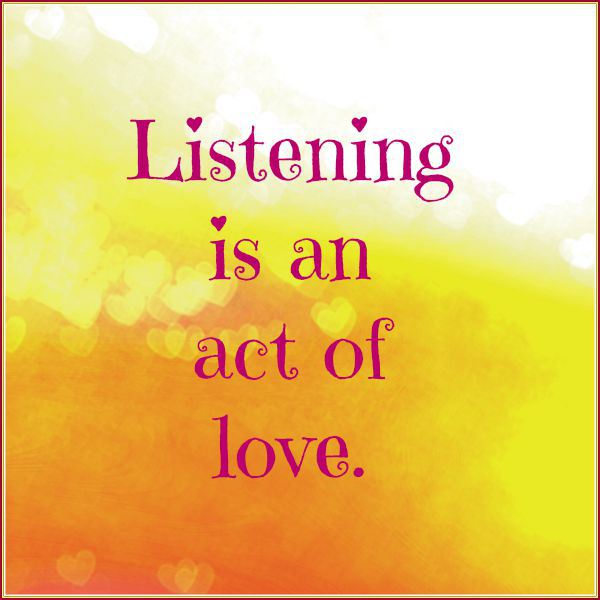
How to Help Someone with Anxiety: A Letter to Family & Friends
Last week, we asked the Anxiety Sisterhood what you want your friends and family to know about your life with anxiety, and you told us quite a lot. We tried to put it all together in letter form so you can share this with your people and add in your individual concerns:
To [Anyone Who Cares About an Anxiety Sufferer]:
Thank you so much for taking the time to read this letter. I really appreciate your willingness to learn more about my disorder, which can be so confusing—even for me. I can seem fine one minute and then be unable to function the next with no logical reason. And then, it’s very hard to figure out how to help me get through the anxiety; honestly, I don’t usually know what to do either. I understand how you are feeling because I feel that way too. This disorder baffles, frustrates, and terrifies me even more than it does you!
Here is what I understand about anxiety:
- Anxiety is a brain disorder. All human beings have the fight, flight, or freeze instinct which keeps us safe in many situations. From an evolutionary perspective, our anxious instincts kept us from becoming dinner for saber-toothed tigers or rattlesnakes. In the modern day, anxiety brains, for many physiological reasons, perceive threats in places or situations that are perfectly safe. In other words, I can experience the fight, flight, or freeze instinct (and it is instinct and not rational thought) in the grocery store, at a restaurant, while driving on a sunny day, or while sleeping in the middle of the night. The part of my brain that signals danger is overactive. As a result, I can become anxious without any apparent reason at all. My trigger-happy brain misfires for no rational reason, so I cannot control when it comes and goes. Which is frustrating and scary for me (and for you too).
- Anxiety is not a choice or a decision or a character flaw. As such, I can’t “just relax” or “don’t think about it” or “snap out of it” even though there is nothing I’d rather do. The truth is, when people tell me to calm down, it only makes the anxiety worse.
- Sometimes my anxiety is so intense that I cannot function at all. It’s like a crippling migraine or stomach flu in that it takes over my body and I cannot do anything until it subsides. Please know that I am not flaky, lazy, or inconsiderate when I cancel plans. One of the hardest parts of my anxiety disorder is its unpredictability—even when I really want to see you or be at an event, my disorder may make that impossible for me. You should know I am as disappointed and frustrated about having to cancel plans as the people in my life affected by it.
- Anxiety is very physical—I don’t just feel anxious in my mind. And the physical symptoms of anxiety are excruciating. I really feel like I am dying during a panic attack. Some common symptoms are rapid heartbeat, dizziness, shortness of breath, sweating, nausea/vomiting, and even skin rashes, but there are many other physical manifestations as well. Sometimes, the symptoms are so painful and frightening that I have to visit the doctor or ER to make sure it is really anxiety.
- Likewise, I am often dealing with intense emotional symptoms. I may feel “separated” from my body (depersonalization or disassociation), have obsessive thoughts playing in a loop, and become sensitive to noise, sounds, and light.
- For all these reasons, anxiety is utterly exhausting. If I am sleeping a lot or during the day, it is because I am completely wrung out from fighting the anxiety and dealing with the symptoms.
- Anxiety does not diminish intelligence so please do not dismiss the legitimacy of my concerns or observations just because I have anxiety.
Here’s how you can be supportive of me and help me through my anxiety:
Ask me, (preferably when I am not in the throes of a panic attack) how you can help. Different people need different things. Some of us like to be hugged or swaddled, while others cannot be touched. Ask me what I need (it may be different each time). I also may react to noise, lights, smells or any sensory stimulation when I am anxious, so I could use a calm and quiet space to myself. Sometimes, I would just like you to sit with me and tell me it’s going to be okay.
Understand that, no matter what you do, you cannot end or take away my anxiety. But knowing that you care means so much and will definitely make the situation easier to handle.
Accept me, have patience with me, and realize how brave I am for living with anxiety. I know it is not easy to deal with my anxiety, but I do need to know that you still love me—that my brain disorder hasn’t taken you away from me.
Keep learning about anxiety. I can direct you to some good websites which will help you understand my disorder. And keep the lines of communication open—we need to talk about the hard stuff.
Your support means everything to me.
Gratefully,

Cecile Wall
This is well and verbally expressed. Says it all. Explains clearly nature of disorder